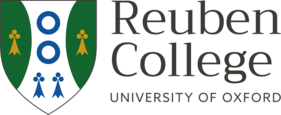Values & Society insights with Dr Jonathan Pugh

Dr Jonathan Pugh is an Official Fellow of Reuben College and the Theme Lead for Values & Society. Within the wider University, he is a Parfit-Radcliffe Richards Senior Research Fellow and Manager of Visitors Programmes for the Oxford Uehiro Centre for Practical Ethics, University of Oxford. Dr Pugh's research interests primarily lie in issues concerning personal autonomy in practical ethics, particularly topics pertaining to informed consent. He has also written on the ethics of human embryonic stem cell research, criminal justice, human enhancement, and gene-editing.
We’re grateful to Dr Pugh for taking the time to share his thoughts with us in a Q&A.
Q&A session
How would you explain what 'Values & Society' means to an extra-terrestrial life form?
The 'Values & Society' theme is all about addressing fundamental questions about what it means to live well, and how we can create social and cultural environments that enable all members of society to flourish. These are deep questions that we humans tend to ask ourselves from time to time, but I suspect they would also be fairly important for ET, despite our other differences.
What has your experience been like leading the Values & Society theme at Reuben and what are your current priorities?
I have only been in the role for a year, but a lot has happened since I took over the reins from my excellent predecessors. One of the most interesting parts of the experience has been helping our fellows and students navigate discussions about what we want the theme to address going forward. We have agreed that our main priority is to increase the visibility of the excellent and varied work in the humanities and social sciences that is already being carried out by our students and fellows. We want to showcase the value of that work and to make it clear that Reuben College is an exciting place to be doing it.
How has your role evolved since joining as one of the inaugural Fellows?
As one of the earlier fellows to join the College, a lot of my contributions were a little more operational, in the sense that I would be rolling up my sleeves by giving Dining with Dinosaurs/Tuesday Talks presentations and contributing to other Reuben events. I still try to attend as many internal events as I can, but as Reuben College has grown and I have taken on the theme leadership, my role has become a little more strategic. So now, my role tends to involve attending and contributing to meetings and committees that are focused on making strategic decisions about how the College should move forward.
What might a typical week in your work life look like?
A lot of my work includes individual research – reading the latest publications in the relevant fields, making notes, and developing new ideas. That typically will involve being sat with a confused look on my face in front of a laptop or a book, either in my office, library, or a coffee shop somewhere. That can be quite a lonely existence if that takes up your whole working week, and it was something that I struggled with when I first moved into independent research. The best way I have found to solve it is to punctuate your working days and weeks with other events that put you into contact with other researchers who are interested in the same things. That might be attending workshops, seminars, journal clubs, etc. This is one of the things that Oxford excels at – you could fill your day just going to talks and lectures that are going on, so the challenge is to be picky. Of course, I also do a fair bit of teaching, so quite a bit of the week will involve meeting with students to discuss essays, and preparing lectures as well.
How does your ethics research connect with the work of other scholars in the Values & Society theme, such as historians, sociologists, linguists, etc.? And how does it connect with the wider themes of Reuben College?
I think if you were to ask any scholar that might fall within the theme about whether their discipline had anything to say about ethical questions, I don’t think you would hear many negative answers. To take history, our answers to ethical questions today naturally have to be informed by lessons from the past. Similarly with sociology, in addressing ethical questions in practice, we have to recognise the importance of the social structures that inform how the public views ethical issues, and that frame the kinds of policy-making responses that might be available. It doesn’t take much digging to see that ethics is connected to a lot of different disciplines.
That also includes disciplines in the wider themes of the College. Of course, there will always be interesting ethical questions raised by the sorts of new technologies and interventions that my colleagues are discovering. Moreover, climate change is arguably the most pressing practical ethical challenge we currently face, and we are also currently facing the question of whether AI systems could develop into agents that are capable of having meaningful values in a manner that is analogous to us humans. As a college, we have plenty to talk about!




